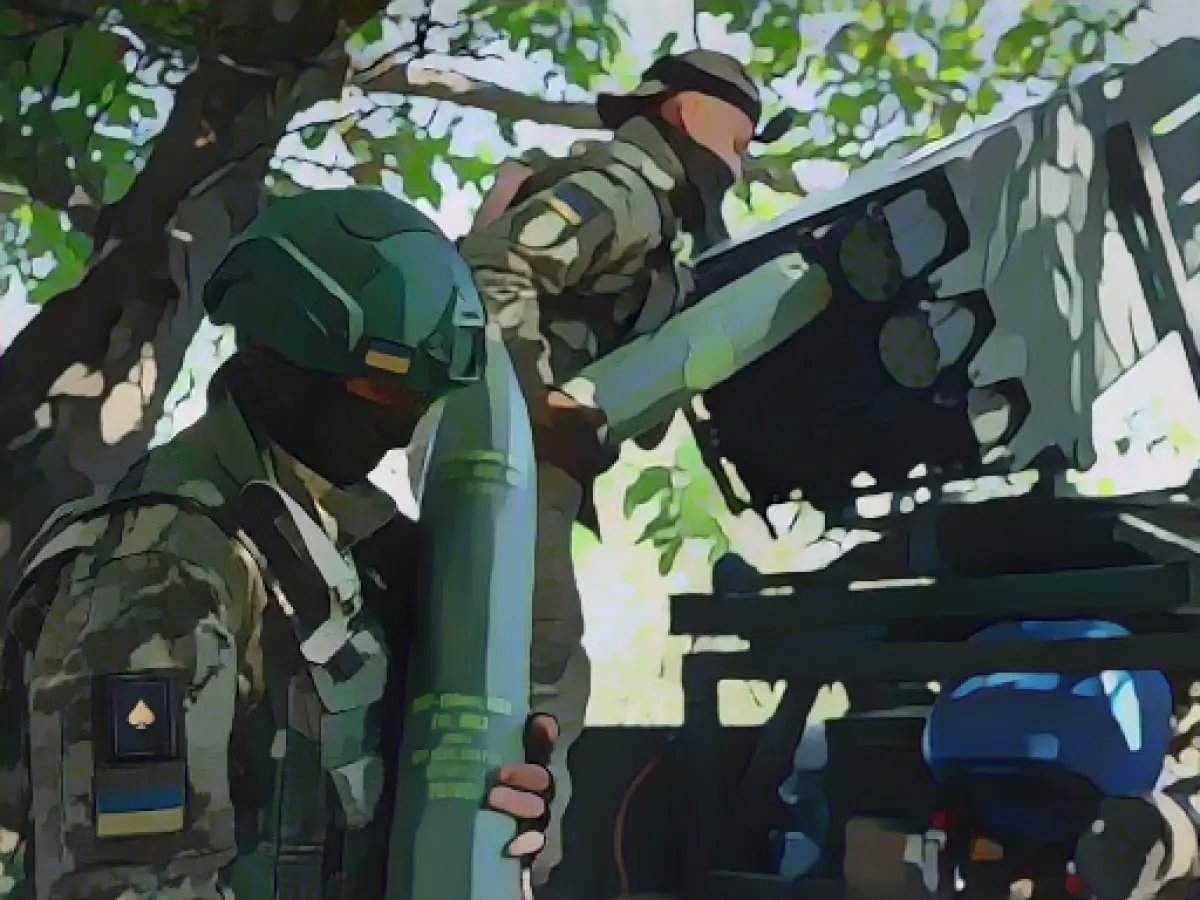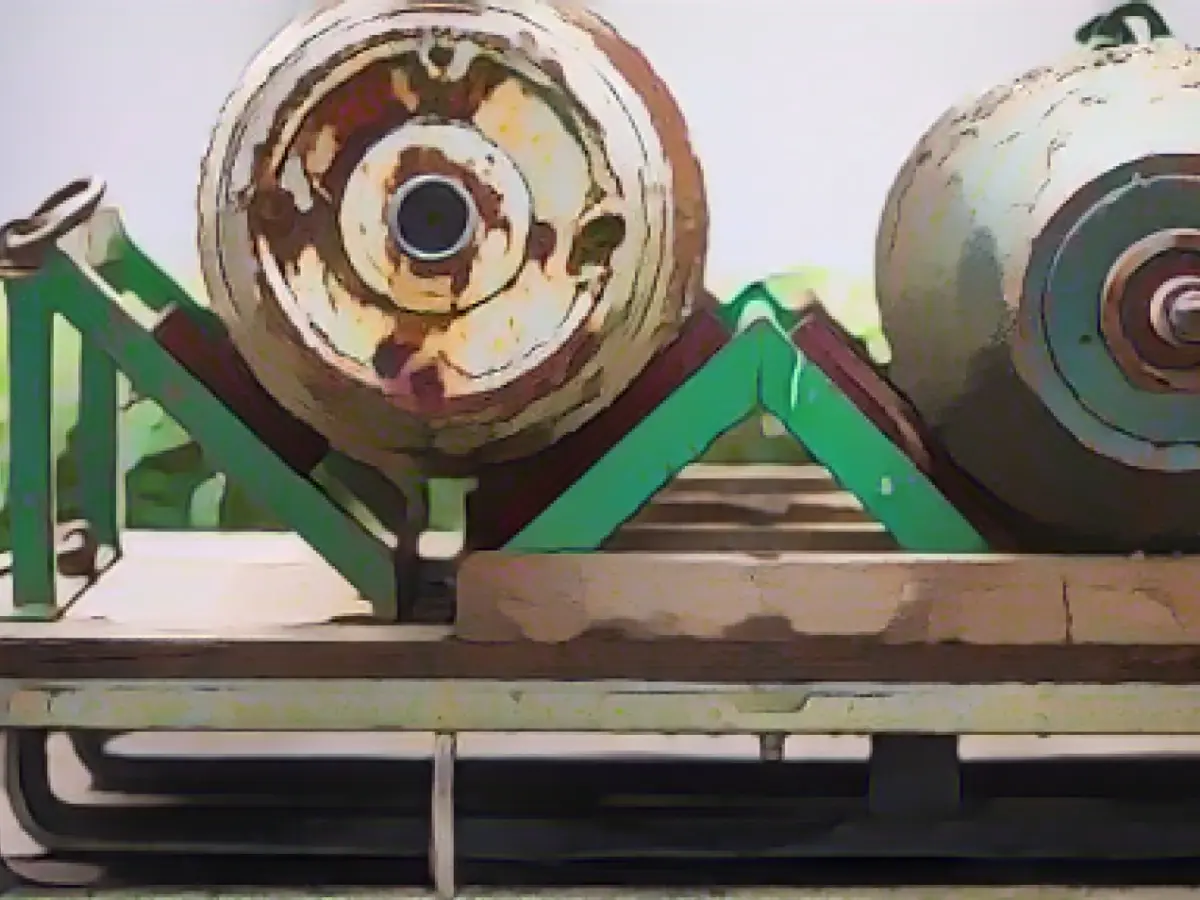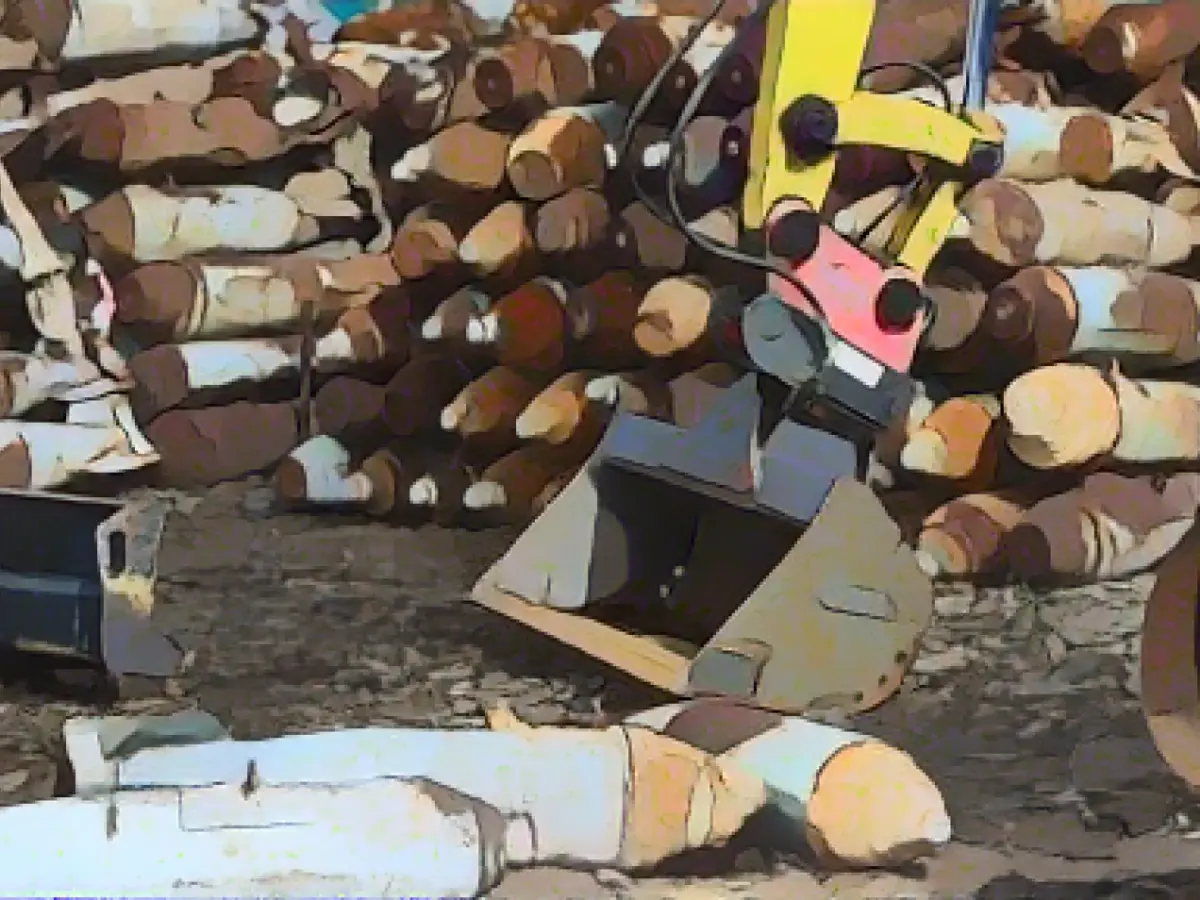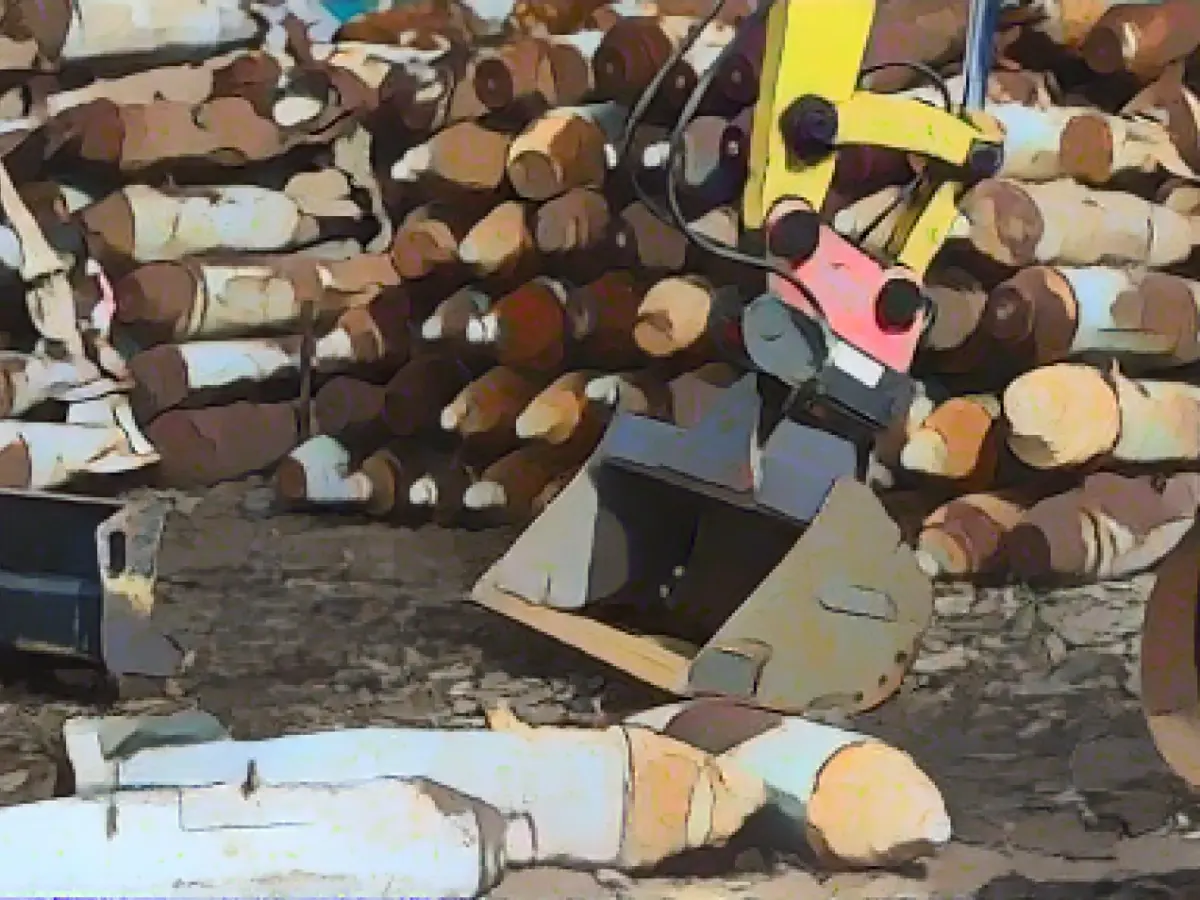EU's Plans for Delivering Ammo to Ukraine May Fall Short
In a stark admission, German Defense Minister Boris Pistorius cast doubt on the EU's ability to meet its promise of delivering one million artillery shells to Ukraine by spring 2024. During a meeting with EU defense ministers in Brussels, Pistorius stated, "The [one million] will not be achieved. We have to assume that."
Production Capacities and Money Issues
Pistorius attributed the failure to the lack of sufficient production capacities. Though Germany contributed significantly to increasing these capacities through framework agreements, the production processes themselves remain unchanged. Even the decision to switch to a war economy wouldn't immediately increase production and meet demands.
Money is available, but insufficient resources pose a significant challenge. Pistorius had previously expressed skepticism about the EU target, claimed to have been announced in March. "I didn't promise a million – deliberately not," he stated. Critics had warned about the challenges in production long before the decision, which unfortunately proved correct.
The EU's Focus on Assisting Ukraine
With the urgent need to support Ukraine and outline future aid plans, the EU defense ministers' meeting in Brussels focused on these issues. On March 20, EU states vowed to provide Ukraine with a million new artillery shells for its defensive war against Russia within twelve months, sourced from member states and new procurement projects. This move aimed to avoid shortages in Ukraine's armed forces.
Accelerating and Expanding Production
Currently, only around 300,000 artillery shells have been delivered. The EU is working closely with the arms industry to explore ways to accelerate projects and boost production rates, according to EU Minister Boris Pistorius. "Production must be ramped up and accelerated. That is the order of the day," he emphasized.
Enrichment Insights
To cope with the current insufficient capacities and challenges, the EU can explore several strategies:
- Collaboration and Coordination – Joint procurements, strategic partnerships, and efficiencies in supply chains can improve the EU's ability to meet its promise.
- Increased Funding – Committing additional resources from EU Solidarity Lanes, a $20 billion EU fund supporting Ukraine, can boost ammunition production.
- Technological Support and Transfer – Accessing cutting-edge technologies and sharing industrial know-how can accelerate the production process.
- Capacity Building – Training and capacity development programs for Ukraine can strengthen the defense industry and improve production capabilities.
- Diversification of Suppliers – Engaging multiple suppliers can ensure a steady flow of artillery shells and mitigate supply chain disruptions.
- Prioritization of Production – Allocating resources and manpower to artillery shell production can help address Ukraine's urgent needs more effectively.
Implementing these strategies can help the EU increase its artillery shell production and deliveries to Ukraine, working around the current challenges and insufficient capacities.







